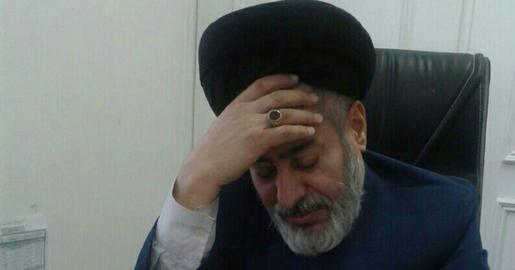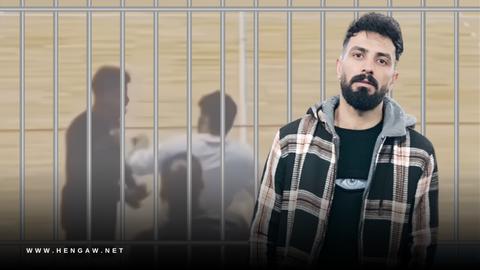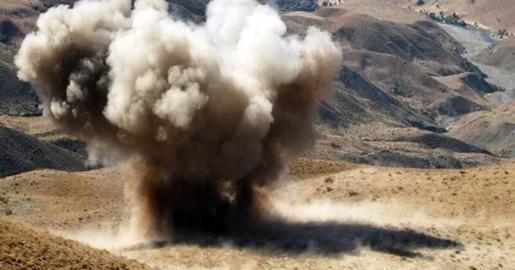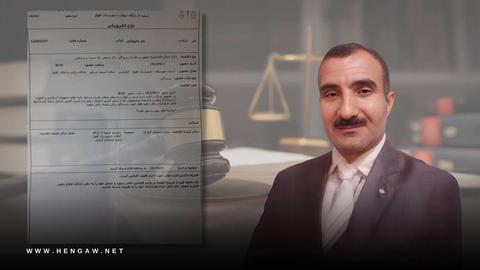The former head of Tehran’s Evin prison has spoken about the cruel treatment inflicted to women inmates in the 1980s, including rape, as a means to prevent them from attaining paradise.
Addressing an event held this week on the Clubhouse online platform, Hussein Mortazavi Zanjani, who served as chief of the notorious prison between 1987-88, said that virgin female prisoners were coerced to marry guards before their execution.
According to ex-political prisoners, this inhuman practice was based on the belief that women and girls dying as virgins would go straight to paradise.
Mortazavi quoted the father of one of the executed women prisoners as telling him after her execution: "What deeply pains and angers me in life is not the killing of my daughter but that they brought money and claimed it was for a marriage sanctioned by Sharia law. This act was more devastating and horrifying to me than the loss of my child."
The ex-official also said that the current president of the Islamic Republic, Ebrahim Raisi, had a direct role in the execution of political prisoners, which were carried out based on a fatwa by Iran's then supreme leader, Ruhollah Khomeini. Raisi was at the time the deputy prosecutor of Tehran.
Mortazavi's comments ignited a firestorm of reactions, with some former prisoners saying that he did not provide any new and substantial information regarding the mass executions.
Who is Mortazavi
Mortazavi explained that he was first sent to Evin prison in 1981 to conduct "cultural work" by a cleric named Shafi'i who later became the deputy of the Ministry of Intelligence.
According to former prisoners, one of Mortazavi's duties was to interview inmates before their release.
These interviews were made in line with then Supreme Leader Ayatollah Khomeini's statement that "prison is a school." They were intended to provide guidance and encouragement to the detainees.
Mortazavi eventually became the head of Gohardasht prison, near Tehran, and the chief of Evin prison. He claimed he resigned from that position during the mass executions of political prisoners.
Mortazavi ran for office in the 2000 parliamentary elections but failed to win a seat. He adopted the slogan "I am neither a face nor a piece [of chess]," which showed his intention to avoid getting involved in political games or being used as a pawn by others.
In the 1990s, Mortazavi regularly addressed student gatherings, but right-wing student groups were reluctant to invite him due to his affiliation with the leftist movement.
He Doesn’t Know the Number of Prisoners
Mortazavi has participated in multiple events held on Clubhouse during which he often repeated previous comments he had made. Some political prisoners say his remarks were riddled with contradictions.
He claimed to have had access to daily prisoner statistics, but he conveniently forgot the figures.
The former head of Evin prison asserted that there were initially more prisoners affiliated with the Mujahedin-e Khalk (MEK) group, whom Iranian officials regard as terrorists, than members of the Left movement. The number of left-wing prisoners supposedly increased following the arrest of members of the communist Tudeh Party.
Mortazavi portrayed the head of the prison as a figure lacking authority who was unable to make decisions regarding matters such as the transfer of prisoners to hospitals.
However, some former political prisoners assert that the prison chief and other prison officials held a significant role in preparing the prisoners' files for the "Death Board," a group of decision-makers deciding whether prisoners should live or die.
Kurdish and Baha'i Inmates
Regarding his experience at the execution site, Mortazavi said, "One of the Kurds approached me and claimed that they were killing him because of his Kurdish identity."
In another segment of his speech, he acknowledged the oppression faced by members of Kurdish and Baha'i minorities.
visit the accountability section
In this section of Iran Wire, you can contact the officials and launch your campaign for various problems



























comments